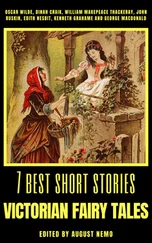Her throat ached. Sonny, intent on his task, was losing a future, his future, maybe stunted and loveless and second groupish, but his.
Friday night, Mindy and Talia sat side by side on Talia’s bed, their legs dangling as if from a raft into a lake. Side by side but not hip to hip; they were separated by an expanse of tufted bedspread. And so they managed to face each other by twisting their slender torsos. The profiles did not match: Talia’s nose was long and commanding, Mindy’s straight and agreeable. Mindy’s non-Jewish features might serve to move her even higher on her mother’s imaginary ladder, might even allow her to swing over to the Yankee ladder, onto a Yankee rung, next to a Yankee boy. Her parents would wring their hands but they would not declare her dead. “Sonny has a lethal disease,” Mindy said.
“Fatal,” Talia corrected. “Sonny…? Oh, yes, the vegetable boy. Which disease?”
“I don’t know.” Mindy repeated the conversation she’d overheard.
“That’s too bad,” Talia said.
“It’s terrible.”
“Terrible, then.”
“I mean…suppose it was us.”
“ Were we. You’re always thinking of yourself.”
Mindy only guessed that Suppose it was us, though brief and ungrammatical, was a necessary first step toward putting oneself in someone else’s shoes, for you had only to reverse subject and complement to say Suppose we were Sonny. Suppose we faced pain and then darkness; pain, what is it like for Sonny; darkness, how will it be? But she was sure that Talia, not far from her on the bed, was insulting her and that what might have been a moment of closeness between the girls had turned into a kind of spat. “I’m sorry,” Talia muttered, but too late — Mindy stood up and left her hard-hearted sister.
Hard-hearted? Talia would have said other-minded . Though she thought of Sonny as a kind of vegetable, she knew he was a human being, and therefore worth saving, like all those human beings she would be called upon to save when she finished medical school. Perhaps one day she would invent a cure for his disease. But today what Sonny needed was a remedy from the mythical past. Some functionary in the kingdom of the sick had moved her father to the kingdom of the well and replaced him with Sonny. There must be a new magic, perhaps a heavenly one. Maybe the changeable, demanding God of the Legends would let Sonny live if Louie bought him a robe edged with embroidered pomegranates. Or perhaps her mother would redeem the boy by sacrificing one of her daughters, the way Hannah devotedly sacrificed Samuel to Eli, the way Beauty’s father unwittingly sacrificed his girl to the beast. The selected daughter — Mindy? — would marry Sonny, and on their wedding night he’d be transformed from a turnip into a prince; Mindy would become a princess. Talia would be rid of her.
On Saturday afternoon Mindy and Tem were playing gin rummy. Their father had been kibitzing but he had gone upstairs for a nap. Mindy revealed the latest news.
“Children don’t die,” Tem countered. “Sometimes they drown, that’s all.”
How innocent a twelve-year-old could be. “They die of diseases too.”
“In books. Not here. Stop talking. Gin.”
The bested Mindy exited through the archway to the dining room just as their father descended the stairs into the hall. Tem was treated to the back view of her sister, all grace and angora, and to the front view of her parent — what a tiny nap he’d taken, how could it have been restful. Her hand itched for a pencil; she’d use the side of the graphite for those grooves on the cheeks, crosshatches for the area under the pursed lips. Dr. Margolis, Restored to Health? No: Dr. Margolis, Pretending Not to Hurt. His restoration had been so brief. She felt cruelly teased. But she smiled at him, and he managed to smile at her. He sat down on the recliner. Tem was wearing work overalls that Aunt Cecile had bought for her at a secondhand store, and she knew she resembled a construction worker, and she was sorry for that, for her father was an old-fashioned man who preferred women to look like women. “I’ll be right back, Daddy,” she said, and ran upstairs and put on one of those pleated skirts that hung in her closet and a white blouse that her mother had ironed. Now she was in costume — in drag, Talia had explained: she was a boy impersonating a girl. She ran back down and dropped onto the floor beside his shins and put her hand on his knee, and he took it. She placed his palm next to her cheek. Tomorrow, back in overalls, she would make him a present — an Arcimboldo-like portrait, created not out of vegetables but out of articles from his kit bag: bandages for hair, a swab for a nose, Mercurochrome-soaked cotton for a mustache, and, for eyes, cod-liver oil capsules.
The funeral took place in an unfamiliar, dimly lit shul, the plaster walls shredding. This congregation occupied a low rung on the ladder. Mrs. Louie was undiscoverable within a knot of her family. Louie was shrunken and wrinkled like a forgotten cucumber. A red-bearded rabbi tried in vain to talk sense. Roz remembered the funeral of Cassie Mae, who had worked for the Margolises. The congregation there stood up and wailed and shook its hundreds of black arms. Why couldn’t this bunch of underprivileged Jews let themselves go, become unseemly fools; what a relief that would be. They could storm up to the bimah and kill the robed representative of an incompetent God.
Roz saw tears slide from beneath Talia’s glasses. Mindy sobbed. Tem was stony, as if reserving her grief. Dr. Margolis had stayed home. Cecile had come; school was closed for vacation. She sat at the end of their row wearing her suit for occasions — brown, ill-fitting, with a dreadful blouse in a different brown. She looked dowdy and enviable both. She would never have to bury a child. A child’s death was the one unsupportable grief; Talia had said so, Aristotle had said it to her — as if anybody had to bother to say it, as if every parent didn’t already know. That insupportable grief might be destined for Roz herself, who could tell.
But for her daughters? With lips pressed together and eyes fixed on the comfortless ark, Roz prayed for them. She asked not for lives free of sorrow — what deity would heed that request? No; she made a sensible plea: she prayed that all three would turn out to be barren.
I was eight — old enough to be taken along on a house call as long as I stayed out of the bedroom or whatever room was to be used for the examination. Little children were sometimes examined on the kitchen table spread with a quilt. In those cases I hid behind an open door or maybe squatted outside the house beneath a window so I could hear the conversation, all sentence fragments as my teacher would have pointed out, that got batted like a shuttlecock between my father and the child’s parents. But this morning my father was visiting an adult, Mr. Workman, patient and friend. Mr. Workman had a bad heart, not as bad as he thought it was, my father had told me, but bad enough to be listened to whenever he phoned.
“Can you hear that syncopation on your receiver?” he’d shouted.
“No. Sam. Sam! Take the phone away from your chest…” Pause while Mr. Workman presumably obeyed. “Put it back up to your ear and listen to me. I’m on my way with my stethoscope.”
“Good,” Mr. Workman said. “And after you listen to my heart with that thing I’ll use it to call my aunt Mary.”
So he probably wasn’t in too much discomfort.
My father was what you might call a country doctor if by that you meant something sociological: a doctor who practiced in both a small town and the rural area surrounding it. Or you might mean something more artistic, more Norman Rockwell — ish — a doctor who drove a car so old that his patients were likely to outlive it, a doctor whose stubby fingers, smelling of cigar overlaid with soap, seemed Velcroed to an old black bag, except this was seventy years ago and Velcro had just been invented and none of us had heard of it. In the trunk of his rattly car he kept a case of medicines, a few of which he always transferred to the house icebox whenever he entered a home and never forgot to remove on departure. Sometimes I thought he never forgot anything. But I have discovered through the years that anyone who restricts his conversational responses to what he knows — what he knows he knows — will always seem to have an extraordinary, well-stocked mind. My father did know a lot but not everything. He knew midcentury medicine and American history and some botany. He knew some chemistry and a lot of anatomy. He didn’t know the world of animals or the world of stories — two worlds I considered one, since the only books I read were about horses. He knew my mother. He knew me. He knew Mr. Workman and all his other patients too.
Читать дальше












